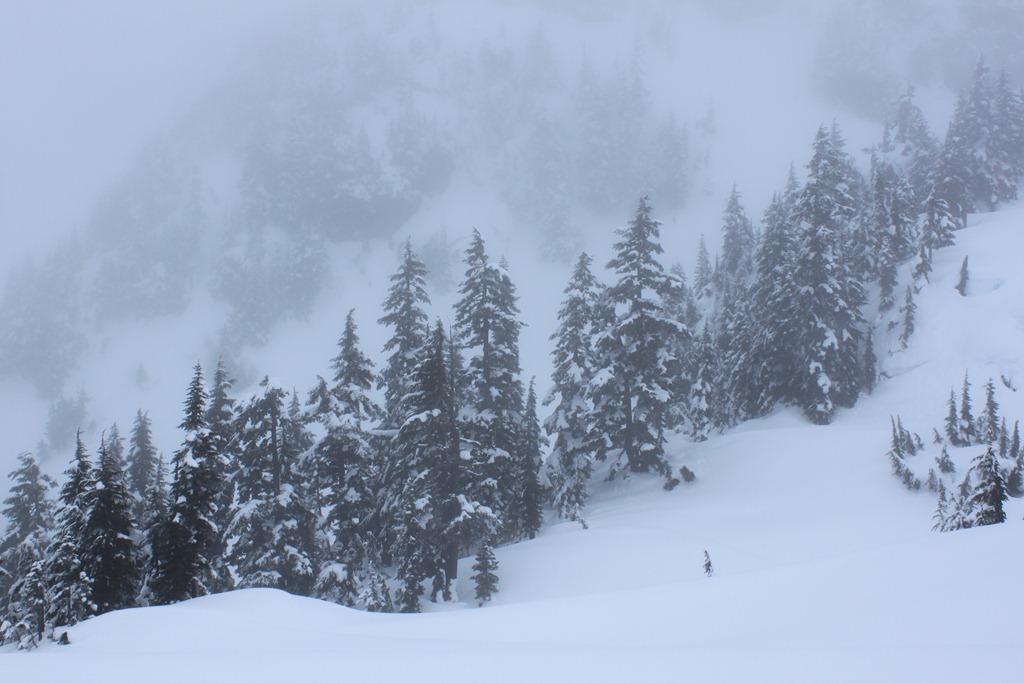Snow, then Rain

I may have mentioned that, to my own dismay I read the comments in news articles. A common news article here in BC is one about the weather and, in the winter, snow. These articles are generally followed by cries of derision from the commenters about how Vancouver people are somehow morally weak, and unprepared for winter.
Now on the south coast, snow is not as common as in the rest of Canada, or even the rest of BC. So when there’s a snowfall warning here, most of the rest of Canada chuckles at how Vancouver reacts. Typically, the city has a bit of a crisis. There are several reasons for this.
One is that, yes, Vancouver drivers are unprepared for winter most years. Our maritime climate sees to that. Most drivers don’t have winter tires, and many don’t even have “all seasons”. We also may be less experienced at driving in the snow.
Second, the city may not have as much snow management equipment in the form of gravel and sand trucks, salt trucks, and snow ploughs. This tends to contribute to the first point, as even an experienced driver would have trouble without snow clearing equipment.
Thirdly, and the point of this post, the snow here is very different that in the rest of Canada.
Ice Skating
I’d like to talk for a few seconds about Canada’s other winter sport, ice skating. You glide across the ice on a “blade” or ice skate. Everybody knows ice is slippery, but do you know why?
Well, it turns out ice itself is not slippery. What you’re gliding on is a very thin layer of water. The water is produced by the pressure of your foot. In the case of ice skating, the pressure per square inch is magnified by the tiny surface area of the blade on the skate. The amount of water needed to glide is very small, and it usually freezes up right after the skate has passed by.
However, when skating at -25°C, even the pressure of the skate has very little effect. So, when my friends and I rented ice skates in January in Ottawa to skate on the Rideau Canal, we found that it wasn’t much fun. In fact it was very much like walking on concrete. Later on that year I went mountain biking on the canal one night with similar effect. The ice is simply not slippery.
In fact, I rode my bike all winter in both Ottawa, Ontario and in Edmonton, Alberta with no trouble. The snow in both places is dry, it squeaks when you walk or ride on it, and it has the consistency of sand. Neither city seems to use salt much, since it has almost no effect below -12°C. Riding my bike in Vancouver however has resulted in several falls throughout the years. In one case my former girlfriend fell and split her helmet in half on the curb.
Did you know that they actually insulate highways in Alberta with polystyrene foam in preparation for the winter? Did you also know that some roads have heating installed to assist with snow removal? Not in BC.
Back to Snow
Which brings me back to Vancouver, BC. It doesn’t snow here much, but when it does, it tends to happen around zero degrees. Systems rolling in from the Pacific are usually warm, and either hit cold air as they arrive (warm front), or have cold air following them as they leave (cold front). This results in a rain-followed-by-snow event, or more commonly snow-followed-by-rain, which is what we are seeing today (November 21st, 2011).
These conditions are almost never seen in the rest of Canada, except for the fall or spring in the Maritimes.
What’s more, it can be very difficult to predict how much snow is going to fall in any given event. If the front stalls, it can be an immense amount, much more that most other places in Canada, except Newfoundland which can beat the pants off everyone else.
And finally, snow in Vancouver is always undergoing melt-freeze cycles. This creates this wonderful thing known as black ice. You can’t see it, you can’t prepare for it.
Driving Snow
I don’t actually believe that people are much better drivers elsewhere in Canada, but their pride demands that they claim to be. I’ve lived, as I mentioned, in Edmonton and Ottawa, but I’ve also driven across Canada and the US several times in the winter, as well as most places in BC. I’m not claiming to be particularly good, but I am particularly cautious.
My observation is this: people tend to drive at their limit most of the time — their limit usually being too fast. So, as I mentioned in my last post when conditions change from what they are used to they don’t do so well. Snow is marginal conditions anywhere, regardless of temperature. My straw poll shows just as many accidents on highways elsewhere in this country as in BC.
The type of snow here in the Lower Mainland is clearly warmer, wetter, more slippery and also less predictable than most of the cold snow in the rest of Canada. It is particularly difficult to deal with, partially because of it’s rarity, and the corresponding lack of preparedness. After driving in in for the past 20 years with a variety of vehicle and snow tire configurations I’ve come to the conclusion that snow near zero degrees is damn near impossible to drive in safely.
There are good reasons why Vancouver comes to a standstill after a winter storm, and it has nothing to do with morality, and very little to do with preparedness. So, rest of Canada, keep your noses clean and cut us west coasters some slack.

As an East Coast native living in BC, my observation here has been that lack of experience causes people to not adapt to changing conditions. Being already at the limit, that lack of adaptation leaves them well beyond the limit when conditions change and they don’t adapt.
Sorry, that sounds all morally superior and stuff :)
That’s a good point, and I’m sure it has an effect. There’s no doubt that a more experienced driver would recognize conditions better and change their driving behaviour to suit. There’s also the bias that the media puts on things, thus the early winter stories will contain info on the number of crashes, and speculate on the lack of winter tires.
However, even Quebeckers have trouble:
http://www.cbc.ca/news/canada/montreal/story/2011/11/23/quebec-snow-traffic.html?cmp=rss
And of course, the rest of BC is a mess just now:
http://www.cbc.ca/news/canada/british-columbia/story/2011/11/23/bc-avalanche-risk-trans-canada.html
Who has more snow driving experience than people in the interior of BC and truck drivers? Yet this storm (slow moving, heavy wet snow) still throws them for a loop. Even the most experienced drivers find conditions that they either don’t recognize, or just can’t handle.
Just before the Olympics I was taking part in “Exercise Silver“. There had been some snow overnight, and while driving to ECOMM that morning I hit a patch of ice and lost control for a few moments. And this on a truck with all wheel drive, stability and traction control, and some of the best winter tires you can buy. The only way to have avoided that particular event would have been to not drive that road, but it was impossible to know that the ice was there unless someone had told me.
I still think that some snow conditions are impossible to travel in safely.
Fair point.
In the Quebec article above, the conclusion appears to be that there are problems because folks didn’t put winter tires on soon enough. Here, I’d be inclined to conclude that people don’t adapt their driving to conditions (adapting could also mean not driving, btw).
Do you think that it’s simply a difference in terms of attribution of root cause due to differences in the semantics? I guess I’m kind of agreeing with you in that it’s probably attributable to people pushing the limits…
I think we’re agreeing.
In the Quebec context there”s a law that says people have to have winter tires from Dec 15 to March 15th and that the early snowfall took people by surprise. Even here in BC I usually put my winter tires on by November 15th because they seem to work better in the rain.
Adapting by not driving is an acceptable solution. I think modern society makes people unwilling to accept “just don’t go” as an answer to how to deal with winter conditions.
I would love to get a look at some accident statistics on this so it’s not just conjecture, but my feeling is that in the Lower Mainland of BC people are able to accept not going to school or work for a snowfall, but in the rest of Canada there’s definitely some pride at being able to handle the weather. I believe that accidents caused by winter weather are probably about equal across the country, balancing the unprepared winter drivers in the Lower Mainland against the more constant exposure to snow in the rest of Canada.
On an “accidents per snow day” it’s probably a little higher in the lower mainland, but only because of the heavier snow, and lack of snow tires.